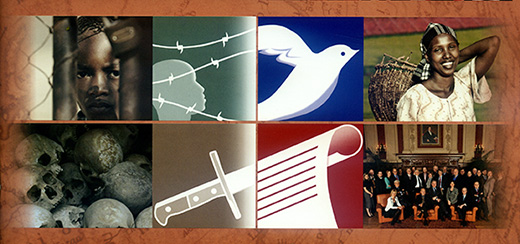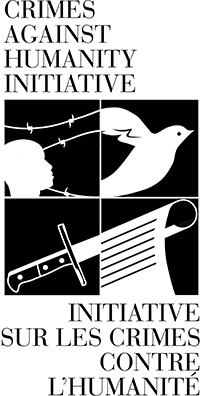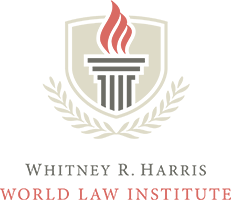The work of the Crimes Against Humanity Initiative recently bore fruit when the United Nations International Law Commission (ILC) voted on July 30, 2013, to add the elaboration of a treaty on “crimes against humanity” to its long-term work program. Established by the United Nations General Assembly in 1948, the ILC is tasked with promoting the progressive development of international law and its codification, and this recent vote is a critical step toward the adoption of an international treaty to punish and prevent crimes against humanity.

The development is the result of a multi-year rule of law project spearheaded by Leila Nadya Sadat, the Henry H. Oberschelp Professor of Law and director of the Whitney R. Harris World Law Institute at Washington University School of Law. Sadat began the Initiative in 2008 to study the need for and draft an international treaty aiming at the prevention and punishment of crimes against humanity. The work of the Initiative is overseen by a seven-member Steering Committee chaired by Sadat.
Since its launch in 2008, the Initiative has worked with more than 250 international scholars, practitioners, and jurists to publish an award-winning book on the subject of crimes against humanity, Forging a Convention for Crimes Against Humanity (Cambridge University Press, 2011), which includes English and French language versions of a Proposed International Convention on the Punishment and Prevention of Crimes Against Humanity. The draft convention, which was prepared under the leadership of Steering Committee member and Distinguished Research Professor of Law at DePaul University College of Law M. Cherif Bassiouni, has since been translated into Arabic, German, Russian, and Spanish, and a Chinese translation is forthcoming.
Members of the Initiative’s Steering Committee are thrilled with the ILC’s favorable vote. “I welcome this important step toward filling an unfortunate gap in international criminal law – an international convention pursuant to which States will outlaw a most egregious form of criminality – crimes against humanity,” says Richard Goldstone, former chief prosecutor of the International Criminal Tribunals for the former Yugoslavia and for Rwanda.

“Crimes against humanity are widespread and represent one of the most serious crimes under international criminal law. Therefore, they simply must be addressed in a specific convention in the same manner as genocide and war crimes” notes Hans Corell, former Under-Secretary-General for Legal Affairs and Legal Counsel of the United Nations. “The decision by the ILC is most welcome and indicates a hope that the member states of the United Nations now act with determination and give the Commission a clear mandate to address this matter.”
“The fact that the ILC has placed the crimes against humanity treaty on its agenda is of great significance” says Christine Van den Wyngaert, judge at the International Criminal Court. “It shows that the UN not only has become aware of the importance of developing an enforcement system for crimes against humanity but is also making a first important step towards its realization. The world needs this crucial complement to the system already established by the International Criminal Court and I am very pleased to see it happening.”
The positive vote at the ILC would not have been possible without the efforts of Sean D. Murphy, ILC Memberand the Patricia Roberts Harris Research Professor of Law at The George Washington University Law School, who proposed the topic to the ILC.
As Professor Murphy notes in his proposal, “a global convention on crimes against humanity appears to be a key missing piece in the current framework of international humanitarian law, international criminal law, and human rights law.”
“The development of a Convention on crimes against humanity fills a gap in international law that has existed since the 1940s, when the Convention on genocide was adopted by the United Nations. It makes no sense that there is a convention on genocide and not one on crimes against humanity,” says William Schabas, Professor of International Law at Middlesex University, London. “Professor Sadat’s Initiative shows how academics can contribute to the progressive development of law. The Crimes Against Humanity Initiative, which is now moving a step closer to reality, owes its existence to a dynamic university and an inspired, energetic professor.”
The Crimes Against Humanity Initiative is currently in its fourth and final phase, which focuses on increasing international support and public awareness of the pervasiveness of crimes against humanity, the plight of victims, the existing culture of impunity for perpetrators, and the great need for a specialized international convention to combat this problem.
“It is hoped that by the end of this phase of the Initiative, the international community will have a strong conviction that the elaboration of a comprehensive international instrument on crimes against humanity is both urgently required and eminently feasible,” Sadat says.
This year’s International Law Weekend (ILW) in New York will include a panel on crimes against humanity on Saturday, October 26, 2013 at Fordham University School of Law. Confirmed speakers include M. Cherif Bassiouni, Arturo Carrillo, Larry D. Johnson, Sean D. Murphy, Leila Nadya Sadat, and Beth Van Schaack.
The Crimes Against Humanity Initiative is made possible by generous grants from alumnus Steven Cash Nickerson, JD ’85, MBA ’93, the U.S. Institute of Peace, and Humanity United.
For more information, and to read the text of the Proposed International Convention on the Prevention and Punishment of Crimes Against Humanity, please visit http://sites.law.wustl.edu/WashULaw/crimesagainsthumanity/.
